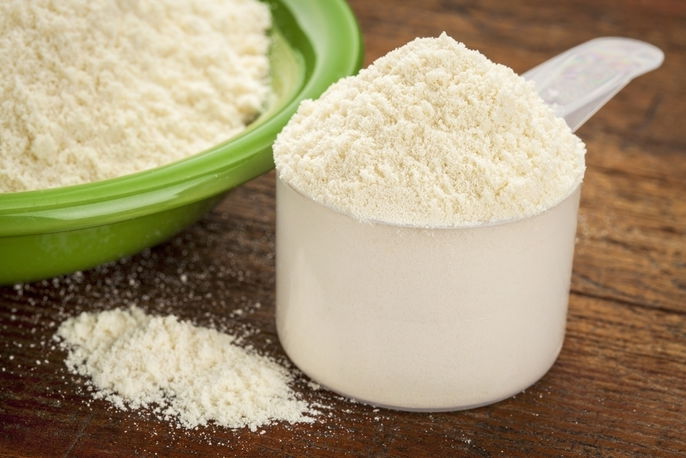Maltodextrin is a type of carbohydrate that is quickly absorbed by the body. It is generally indicated to improve physical performance and promote muscle gains needed for high-endurance activities, such as football, running or strength training.
Additionally, maltodextrin is also used in the food industry to sweeten and thicken foods and beverages. It is often added to infant milk formulas, diet products, ice cream, butter, sauces, and beer.
Maltodextrin is sold in natural health stores or pharmacies, in the form of a gel or powder. It can be consumed alone or together with other supplements, such as creatine and whey protein, as a pre-workout, during or after exercise.

What it is used for
The main indications for maltodextrin are:
1. Improve physical performance
Maltodextrin contains ergogenic properties, meaning it provides fast and long-lasting energy to the body. Therefore, maltodextrin is a great food supplement option to be used before or during long-term activities, such as football, triathlon, marathon, rowing, cycling and running.
Maltodextrin can also be used after physical activities to help quickly replenish muscle glycogen ad promote muscle recovery, which can be beneficial for athletes with multiple competitions in a single day, for example.
2. Promote muscle mass gains
Maltodextrin is a carbohydrate, a nutrient that can improve performance during training. It provides energy for the formation of muscle mass and can therefore lead to muscle mass gains. Check-out other supplements for muscle growth that you can take.
3. Help with post-operative recovery
Maltodextrin can be prescribed by a doctor or registered dieitian to help promote post-op recovery. It is a great energy source, and also helps to reduce inflammation, which may decrease the hospital duration.
Maltodextrin can be used in a hospital setting, through enteral or parenteral nutrition, which is a method of injecting nutrients into the vein or digestive tract for those who are unable to orally obtain nutrients.
4. Treat dehydration
In the hospital setting, maltodextrin can be added to oral solutions to treat dehydration, especially when caused by diarrhea.
How to take
Maltodextrin can be taken before, during or after working out, depending on each person's health goals. The generally recommended amount of maltodextrin is 10 to 30 grams, which should be diluted in 200 to 300 ml of water or another drink. After ingestion, maltodextrin begins to act in the body within about 20 minutes.
Maltodextrin use should preferably be monitored by a doctor or registered dietitian, so that doses can be adjusted depending on each person's energy needs.
It can also be consumed in combination with other carbohydrates, such as fructose and glucose or together with other supplements, such as creatine or whey protein, to help promote muscle mass gains.
Prescription oral solutions, or enteral or parenteral nutrition should be used only as directed by a doctor or registered dietitian.
Does maltodextrin lead to weight gain?
Because it is a carbohydrate with a high glycemic index, maltodextrin can lead to weight gain, especially if it is added to a high-calorie diet and a sedentary lifestyle.
Is maltodextrin harmful?
To date, there are no studies that indicate that maltodextrin is harmful to your health or causes problems to your kidneys, liver or heart.
Difference Between Dextrose and Maltodextrin
Dextrose is a simple carbohydrate that is quickly converted into glucose and absorbed by the body. It is indicated to improve recovery following intense exercising, like weight lifting and high-intensity interval training (HIIT).
Maltodextrin is a complex carbohydrate that is made-up of dextrose, maltose and fructose. It gradually provides energy and is therefore widely used by endurance athletes, such as soccer players, runners or cyclists, as it delays the onset of fatigue during exercise.
Possible side effects
Consuming maltodextrin does not normally cause side effects. However, unguided and excessive use of maltodextrin can lead to weight gain and the emergence of insulin resistance and diabetes.
Contraindications for use
Maltodextrin use should first be evaluated for pregnant or breastfeeding women, older adults, children, or people with diabetes, obesity or other health problems.






























